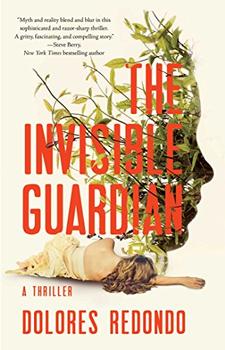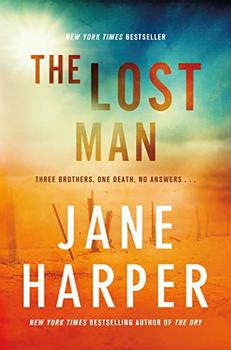Summary | Excerpt | Reviews | Beyond the book | Read-Alikes | Genres & Themes | Author Bio

Dolores Redondo's The Invisible Guardian is so much more than the sum of its mystery/police procedural parts. It's also a character-driven story about coming home, family, myths, and superstitions; about the things we hold onto even as we try to let them go. On top of all that there is great joy in learning about the nuanced differences between Basque culture and language, and that of my home (the very unromantic Midwestern USA).
Inspector Amaia Salazar of the Navarre (Northern Spain) Policía Foral lives in Pamplona with her husband James, who is a successful artist from the United States. Both are in their mid-thirties and childless. Amaia is intelligent, intuitive and FBI-trained. Early one morning she learns that the bodies of two young girls (both under 15) have been discovered near Elizondo, a town about 50 miles north of Pamplona and deep into Basque country.
Both girls had been murdered – one in January, the other in February – their bodies arranged in a bizarre ritualistic fashion and left deep in the forest on the banks of the Baxtan River. Additionally the murderer has placed a pair of fancy high-heeled shoes alongside the road near where each of the bodies is located. Since Amaia is a native of Elizondo – born and raised there until she fled nearly two decades ago – and has the advantage of FBI profiling training, she is chosen to lead the investigation. Familiarity with the locale's unique and isolated geography and character might be key to solving the crimes. Not all her teammates agree that Amaia should lead, so she starts at a slight disadvantage
She and James decide to temporarily relocate to Elizondo, stay with her Aunt Engrasi, and visit with her sisters Flora and Rosaura. It's a move that takes an emotional toll on Amaia. Combined with the unspeakable cruelty of the murders, revisiting old ghosts threatens to be Amaia's undoing. Memories in the form of flashbacks to the spring of 1989 begin to wheedle their way into her subconscious, gnawing at her self-confidence.
"There were some good days, almost always Sundays, the only day her parents didn't work. He mother would bake crisp croissants and raisin bread at home, which would fill the house with a rich, sweet fragrance". Then their mother and father would dance to old Nat King Cole songs and the girls would join in, one at a time. First Flora, then Ros, while Amaia watched and laughed from the couch. "She didn't dance, because she wanted that ritual to last a bit longer, and because she knew that if she got up and joined the group, the dance would end immediately," and her mother, "would leave with a ridiculous excuse."
Between flashbacks that reveal increasingly bizarre memories, plus having a dysfunctional relationship with her sisters, the investigation moves along amid suspicions by the locals that the perpetrator is a mythological Basque cryptid called basajaun. A basajaun is a Yeti-like creature fabled to possess magical powers that guards the vast forest of Northern Spain. Indeed even Amaia, who knows better, begins referring to the murderer as basajaun. It's not hard to understand since so much about the character of this magnificently beautiful region revolves around myth and superstition. Even Aunt Engrasi and sister Ros refer to their decks of Tarot cards when faced with difficult decisions.
Redondo's narrative is slowed a bit by longish descriptive passages that plunge us into the embrace of the cold, dark, mid-winter forest. And the investigation is not necessarily conducted according to the flawless CSI TV show standards we police procedural fans have come to expect. But Amaia's character development and the glimpse of a culture and language rhythm that is so foreign to me possessed me from the start (not unlike my enthrallment with Jo Nesbø's Harry Hole series). Throughout The Invisible Guardian I found myself pausing to roll all the words (there's a glossary at the back) with so many xs and zs around in mouth. I will look forward to reading Redondo's next book in this series.
![]() This review was originally published in The BookBrowse Review in May 2016, and has been updated for the
September 2017 edition.
Click here to go to this issue.
This review was originally published in The BookBrowse Review in May 2016, and has been updated for the
September 2017 edition.
Click here to go to this issue.

If you liked The Invisible Guardian, try these:

by Simone St. James
Published 2020
Something hasn't been right at the roadside Sun Down Motel for a very long time, and Carly Kirk is about to find out why in this chilling new novel from the national bestselling and award-winning author of The Broken Girls.

by Jane Harper
Published 2019
Two brothers meet in the remote Australian outback when the third brother is found dead, in this stunning new standalone novel from New York Times bestseller Jane Harper.
Your guide toexceptional books
BookBrowse seeks out and recommends the best in contemporary fiction and nonfiction—books that not only engage and entertain but also deepen our understanding of ourselves and the world around us.